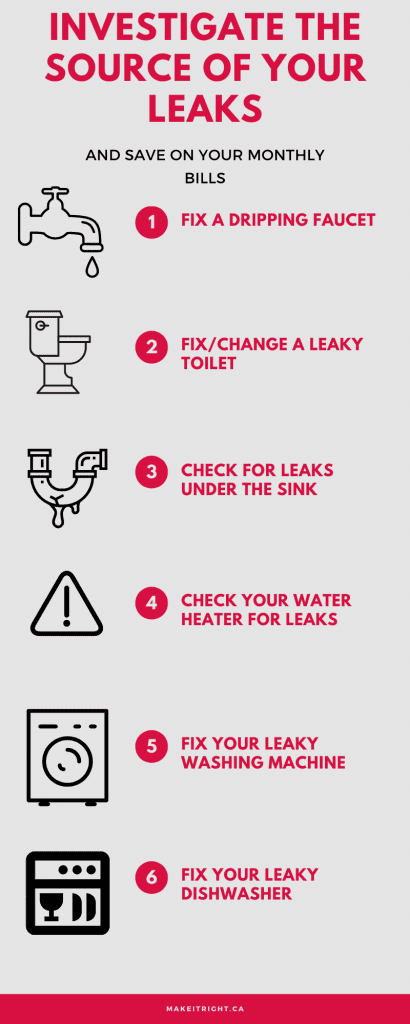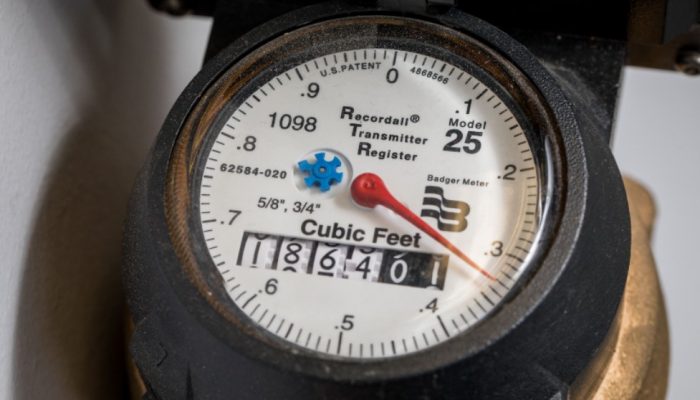Yes, a leaking water heater can definitely cause a high water bill. Even small leaks can lead to significant water loss over time.
Water heaters are essential for daily comfort, providing hot water for showers, dishes, and laundry. However, even minor leaks can turn into major issues, both financially and structurally. As water drips away, your utility bills can skyrocket, leaving you puzzled about the sudden increase.
Regular maintenance and inspections can prevent leaks before they become costly problems. Identifying the signs of a leak early can save you money and ensure your water heater operates efficiently. Understanding the connection between leaks and high bills helps homeowners stay proactive, ensuring both their finances and homes remain in good shape.

Credit: makeitright.ca
Page Contents
The Hidden Costs Of A Leaking Water Heater
A leaking water heater can cause high water bills. Water leaks waste precious resources. Even small leaks lead to significant costs over time.
As water escapes, the heater works harder. This creates energy inefficiency. Increased energy use means higher utility bills. Fixing leaks can save money and energy.
Monitoring your water bill helps identify issues early. If there’s a sudden increase, check for leaks. Catching problems early can prevent expensive repairs later on.
Identifying A Leaking Water Heater
Identifying a leaking water heater is crucial for homeowners. Look for puddles around the base. Rust or corrosion on the tank indicates a problem. Pay attention to unusual sounds like popping or rumbling.
Check the pressure relief valve for leaks. If the valve drips, it may need replacement. Water stains on walls or ceilings can also point to a leak.
Regular inspections are key to avoiding high water bills. Inspect the heater every six months. Clean the area around the heater to spot leaks easily. Consider using a water meter to track usage.
Impact On Your Water Bill
A leaking water heater can significantly increase your water bill. It wastes a lot of water daily. Even a small leak can lead to extra costs. Calculating these charges is important for budgeting.
To find the extra charges, track your water usage. Compare your current bill with previous months. A sudden spike indicates a problem. Contact a plumber to fix the leak quickly.
Long-term effects can be costly. Repeated leaks may lead to higher repair bills. Increased bills can strain your finances. Fixing leaks early helps save money in the long run.
Consequences Beyond The Bill
A leaking water heater can cause serious problems. It may lead to structural damage in your home. Water can seep into walls and floors. This can weaken the foundation over time. Repairing this damage can be very costly.
Mold growth is another risk of a leaking water heater. Excess moisture creates a perfect environment for mold. Mold can affect indoor air quality. This can lead to health issues for residents. Symptoms may include coughing, sneezing, or headaches.
Addressing a leak quickly is essential. Ignoring it can lead to expensive repairs and health risks. Always inspect your water heater regularly to prevent these problems.
When To Act: Timing Is Everything
Act quickly if your water heater is leaking. Ignoring the problem can lead to high water bills. Water leaks can waste hundreds of gallons each month. Early action can save you money and damage.
Check for signs of leaking. Look for water pooling near the heater. If you see water stains, that’s a warning sign. Turn off the water supply to stop the leak. This helps prevent further damage.
Call a professional plumber as soon as possible. They can find and fix the issue quickly. Timely repairs can help you avoid costly water bills.
Professional Vs. Diy Repairs
Assessing the damage from a leaking water heater is crucial. Water stains and puddles indicate issues. Check for rust or corrosion. These signs show that immediate action is needed.
DIY repairs can save money, but they can also lead to problems. Basic tools may help with simple fixes. Yet, some issues require expert knowledge.
Calling the experts is wise for major leaks. They have the right skills and equipment. Professionals ensure safety and prevent further damage. This can save you from a higher water bill later.
Preventative Measures To Lower Bills
Regular maintenance helps prevent issues with your water heater. Create a schedule to check the unit every six months. Look for leaks, rust, or corrosion during checks. Replace any damaged parts to avoid bigger problems.
Consider upgrading your water heater if it’s old or inefficient. New models often use less energy and water. This can significantly lower your bills. Energy-efficient heaters have better insulation and lower operating costs.
Keep an eye on your water usage. Monitoring it helps identify any sudden increases. A sudden spike may indicate a leak, which needs immediate attention.

Credit: www.phila.gov
Future-proofing Your Home Against Leaks
Leaks from a water heater can lead to high water bills. Innovative solutions help prevent leaks and save money. Smart water heaters use advanced technology to detect leaks early. They can alert homeowners if something goes wrong.
Smart home monitoring systems provide real-time data on water usage. These systems can track water flow and identify unusual patterns. Homeowners receive notifications for any potential leaks. This helps to prevent costly damages and repairs.
Investing in these technologies ensures peace of mind. Keeping your home safe from leaks protects your wallet too.

Credit: www.natureshelperinc.com
Conclusion
A leaking water heater can significantly impact your water bill. Ignoring the issue may lead to higher costs and potential damage. Regular maintenance is essential to prevent leaks and save money. Stay vigilant and address any signs of trouble early to ensure your home remains efficient and your bills stay manageable.
